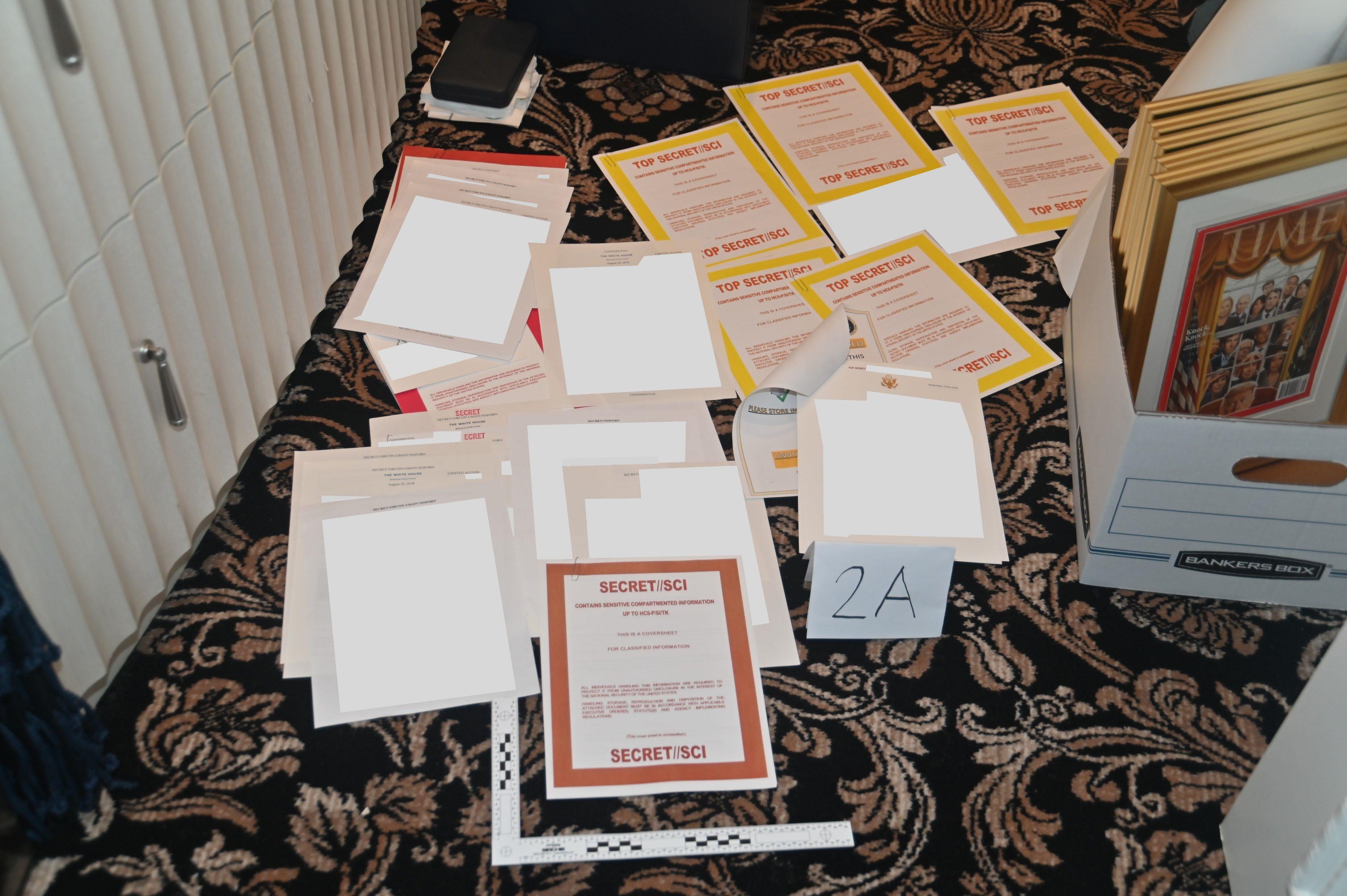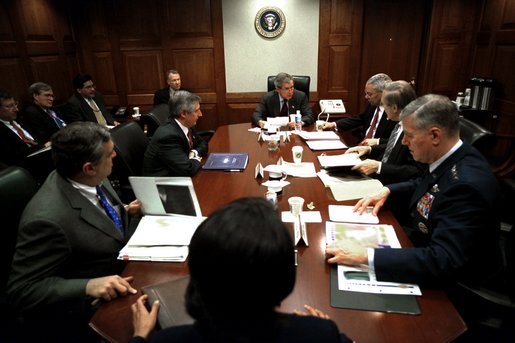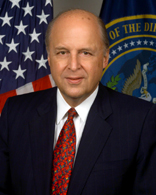|
Interagency Security Classification Appeals Panel
The Interagency Security Classification Appeals Panel, or "ISCAP", provides the public and users of the classification system with a forum for further review of classification decisions. ISCAP states in order to foster a well-informed public while simultaneously protecting national security interests, checks and balances are needed over the classification system. This requires that some of the work of the U.S. Government be done outside the purview of its citizenry. The ISCAP was created under Executive Order 12958, "Classified National Security Information," when it was signed on April 17, 1995 and held its first meeting in May 1996. Today the ISCAP receives its guidelines from Executive Order 13526 of December 29, 2009, which superseded Executive Order 12958 and its amendments in full on June 25, 2010. [...More Info...] [...Related Items...] OR: [Wikipedia] [Google] [Baidu] |
Executive Order 12958
Executive Order 12958 created new standards for the process of identifying and protecting classified information, and led to an unprecedented effort to declassify millions of pages from the U.S. diplomatic and national security history. In 1995, United States President Bill Clinton signed this Executive Order. GPO.gov EO 12958 was amended and effectively replaced by President George W. Bush on March 25, 2003, in Executive Order 13292
Executive Order 13292 was an executive order issued by United States President George W. Bush on March 25, ...
[...More Info...] [...Related Items...] OR: [Wikipedia] [Google] [Baidu] |
Classified Information In The United States
The United States government classification system is established under Executive Order 13526, the latest in a long series of executive orders on the topic beginning in 1951. Issued by President Barack Obama in 2009, Executive Order 13526 replaced earlier executive orders on the topic and modified the regulations codified to 32 C.F.R. 2001. It lays out the system of classification, declassification, and handling of national security information generated by the U.S. government and its employees and contractors, as well as information received from other governments. The desired degree of secrecy about such information is known as its sensitivity. Sensitivity is based upon a calculation of the damage to national security that the release of the information would cause. The United States has three levels of classification: Confidential, Secret, and Top Secret. Each level of classification indicates an increasing degree of sensitivity. Thus, if one holds a Top Secret security ... [...More Info...] [...Related Items...] OR: [Wikipedia] [Google] [Baidu] |
Federation Of American Scientists
The Federation of American Scientists (FAS) is an American nonprofit global policy think tank with the stated intent of using science and scientific analysis to attempt to make the world more secure. FAS was founded in 1946 by scientists who worked on the Manhattan Project to develop the first atomic bombs. The Federation of American Scientists aims to reduce the amount of nuclear weapons that are in use, and prevent nuclear and radiological terrorism. They hope to present high standards for nuclear energy's safety and security, illuminate government secrecy practices, as well as track and eliminate the global illicit trade of conventional, nuclear, biological and chemical weapons. With 100 sponsors, the Federation of American Scientists says that it promotes a safer and more secure world by developing and advancing solutions to important science and technology security policy problems by educating the public and policy makers, and promoting transparency through research and ... [...More Info...] [...Related Items...] OR: [Wikipedia] [Google] [Baidu] |
United States National Security Council
The United States National Security Council (NSC) is the principal forum used by the President of the United States for consideration of national security, military, and foreign policy matters. Based in the White House, it is part of the Executive Office of the President of the United States, and composed of senior national security advisors and Cabinet officials. Since its inception in 1947 by President Harry S. Truman, the function of the Council has been to advise and assist the President on national security and foreign policies. It also serves as the President's principal arm for coordinating these policies among various government agencies. The Council has subsequently played a key role in most major events in U.S. foreign policy, from the Korean War to the War on Terror. The NSC has counterparts in the national security councils of many other nations. History The immediate predecessor to the National Security Council was the National Intelligence Authority (NIA ... [...More Info...] [...Related Items...] OR: [Wikipedia] [Google] [Baidu] |
Controlled Unclassified Information
Controlled Unclassified Information (CUI) is a category of unclassified information within the U.S. Federal government. The CUI program was created by President Obama’s Executive Order 13556 to create a streamlined method for information sharing and safeguarding. The Information Security Oversight Office (ISOO) acts as the Executive Agent (EA) of the National Archives and Records Administration (NARA), and is responsible for oversight of the CUI program. The ISOO monitors the implementation of the CUI program by executive branch agencies. CUI will replace agency specific labels such as For Official Use Only (FOUO), Sensitive But Unclassified (SBU), and Law Enforcement Sensitive (LES) on new data and some data with legacy labels will also qualify as Controlled Unclassified Information. History A Presidential memorandum of May 9, 2008, signed by President George W. Bush, assigned responsibility to the National Archives (NARA) for overseeing and managing the implementation o ... [...More Info...] [...Related Items...] OR: [Wikipedia] [Google] [Baidu] |
Commission Consultative Du Secret De La Défense Nationale
Classified information is material that a government body deems to be sensitive information that must be protected. Access is restricted by law or regulation to particular groups of people with the necessary security clearance and need to know, and mishandling of the material can incur criminal penalties. A formal security clearance is required to view or handle classified material. The clearance process requires a satisfactory background investigation. Documents and other information must be properly marked "by the author" with one of several (hierarchical) levels of sensitivity—e.g. restricted, confidential, secret, and top secret. The choice of level is based on an impact assessment; governments have their own criteria, including how to determine the classification of an information asset and rules on how to protect information classified at each level. This process often includes security clearances for personnel handling the information. Some corporations and non-gove ... [...More Info...] [...Related Items...] OR: [Wikipedia] [Google] [Baidu] |
Public Interest Declassification Board
The Public Interest Declassification Board (PIDB) is an advisory committee established by the United States Congress with the official mandate of promoting the fullest possible public access to a thorough, accurate, and reliable documentary record of significant U.S. national security decisions and activities. The Board is composed of nine individuals: five appointed by the President of the United States and one each appointed by the Speaker of the House, House Minority Leader, Senate Majority Leader, and Senate Minority Leader. Appointees must be U.S. citizens preeminent in the fields of history, national security, foreign policy, intelligence policy, social science, law, or archives. Established by the Public Interest Declassification Act of 2000 (Title VII of P.L. 106–567, 114 Stat. 2856), the board advises the President of the United States regarding issues pertaining to national classification and declassification policy. Section 1102 of the Intelligence Reform and Terro ... [...More Info...] [...Related Items...] OR: [Wikipedia] [Google] [Baidu] |
Information Security Oversight Office
The Information Security Oversight Office (ISOO) is responsible to the President for policy and oversight of the government-wide security Classified information in the United States, classification system and the National Industrial Security Program in the United States. The ISOO is a component of the National Archives and Records Administration (NARA) and receives policy and program guidance from the United States National Security Council, National Security Council (NSC). History On December 1, 1978, President Jimmy Carter established the Information Security Oversight Office through Executive order (United States), Executive Order 12065, "National Security Information". ISOO replaced the Interagency Classification Review Committee (ICRC), which had been created by Executive Order 11652 issued by President Richard Nixon in 1972. The ICRC was composed of representatives from the Departments of Defense, Justice and State; the predecessor to the United States Department of Energy ... [...More Info...] [...Related Items...] OR: [Wikipedia] [Google] [Baidu] |
National Archives And Records Administration
The National Archives and Records Administration (NARA) is an " independent federal agency of the United States government within the executive branch", charged with the preservation and documentation of government and historical records. It is also tasked with increasing public access to those documents which make up the National Archive. NARA is officially responsible for maintaining and publishing the legally authentic and authoritative copies of acts of Congress, presidential directives, and federal regulations. NARA also transmits votes of the Electoral College to Congress. It also examines Electoral College and Constitutional amendment ratification documents for prima facie legal sufficiency and an authenticating signature. The National Archives, and its publicly exhibited Charters of Freedom, which include the original United States Declaration of Independence, United States Constitution, United States Bill of Rights, and many other historical documents, is headq ... [...More Info...] [...Related Items...] OR: [Wikipedia] [Google] [Baidu] |
Executive Order 13526
Executive Order 13526 was issued on December 29, 2009, by United States President Barack Obama.''Promoting Openness and Accountability by Making Classification a Two-Way Street'' by William H. Leary, Special Adviser to the National Security Advisor and Senior Director for Records and Access Management, National Security Staff, 29 December 2009 It is one of a series of executive orders from US Presidents outlining how |
Director Of National Intelligence
The director of national intelligence (DNI) is a senior, cabinet-level United States government official, required by the Intelligence Reform and Terrorism Prevention Act of 2004 to serve as executive head of the United States Intelligence Community (IC) and to direct and oversee the National Intelligence Program (NIP). All IC agencies report directly to the DNI. The DNI also serves, upon invitation, as an advisor to the president of the United States, the National Security Council and the Homeland Security Council on all intelligence matters. The DNI, supported by the Office of the Director of National Intelligence (ODNI), produces the President's Daily Brief (PDB), a top-secret document including intelligence from all IC agencies, handed each morning to the president of the United States. President George W. Bush strengthened the role of the DNI on July 30, 2008, with Executive Order 13470, which, among other things, solidified the DNI's authority to set goals for inte ... [...More Info...] [...Related Items...] OR: [Wikipedia] [Google] [Baidu] |
ISOO
The Information Security Oversight Office (ISOO) is responsible to the President for policy and oversight of the government-wide security classification system and the National Industrial Security Program in the United States. The ISOO is a component of the National Archives and Records Administration (NARA) and receives policy and program guidance from the National Security Council (NSC). History On December 1, 1978, President Jimmy Carter established the Information Security Oversight Office through Executive Order 12065, "National Security Information". ISOO replaced the Interagency Classification Review Committee (ICRC), which had been created by Executive Order 11652 issued by President Richard Nixon in 1972. The ICRC was composed of representatives from the Departments of Defense, Justice and State; the predecessor to the United States Department of Energy, the Atomic Energy Commission, and the CIA. John Eisenhower chaired the ICRC, which met monthly at the White House ... [...More Info...] [...Related Items...] OR: [Wikipedia] [Google] [Baidu] |




